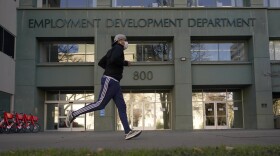Coronavirus Frequently Asked Questions
-
Following the CDC's decision to scale back recommended safety measures for COVID-19, some are wondering whether the shift in policy has come too soon.
-
“Instead, we will utilize our school site metrics and county data to determine whether masking is needed at each school.”
-
The first lady will remain at a private residence in South Carolina and isolate from others for at least five days per CDC guidance.
-
In the U.S., officials have asked vaccine makers to target BA.5, rather than the original omicron strain. That has delayed the boosters' development — but officials hope they will be more effective.
-
Requirements to test and mask and be vaccinated are becoming less common as colleges shift away from treating COVID-19 as an emergency.
-
The number of patients in San Diego County hospitalized with COVID-19 has dropped by 15 to 331, according to the latest state data.
-
COVID-19 activity remains high in San Diego County Friday, the Health and Human Services Agency reported, but antiviral pills and monoclonal antibodies can help with treatment to avoid getting severe symptoms.
-
COVID cases are on the rise again, and experts are concerned that more people will experience post-viral conditions following the surge, causing a ‘mass disabling event.
-
The move from the "high" tier to "medium" will not have any practical effect for residents.
-
A new report says California delayed or improperly denied unemployment benefits for roughly 6 million people during the pandemic.










